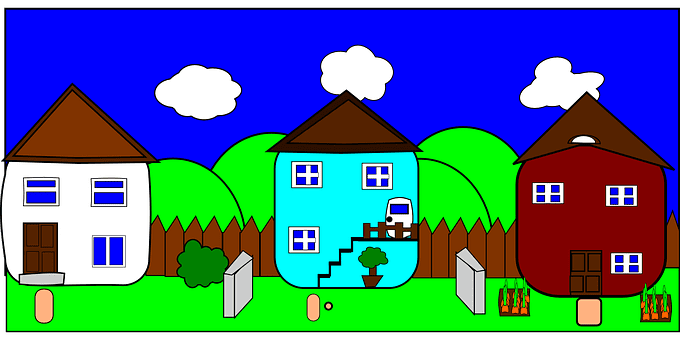With spring upon us, people across the UK are preparing to head out into their gardens to do some annual pruning.
For the most part, basic garden maintenance is rather straightforward; trim the hedges and shrubs, mow the lawn, and get the chairs out of the shed.
But what happens when a neighbour’s plant is growing across onto your property? And what can be done if a neighbour’s tree is blocking the light into your garden?
Simon Roberts, a solicitor from DAS Law, is here to answer those all important questions…
Can you cut down branches that overhang into your garden?
The simple answer is yes. However there are a few points to consider before you start cutting. It is always best to speak with a neighbour and ask them to take action or advise them that you plan on cutting the branches that are overhanging into your garden before you start any removal.
If you are cutting the branches back then simply cut them to the boundary line ensuring that it will not kill the tree/foliage. It is advisable to inform a neighbour that you either plan to place the branches carefully back on their land or to dispose of them.
It is always worth considering whether there is a Tree Preservation Order on particular trees, as this can prohibit some activities that can be carried out. A local planning department should be able to help with this.
Whose responsibility is it to repair or replace an adjoining broken fence?
Initially it is best to look at property deeds to assess whether it is clear who is obliged to fix a broken fence. In most cases deeds can be found through the Land Registry.
If deeds are unclear then it may be necessary to consider whether a precedent has been set where one party has normally fixed the fence. If so, arguably you could ask that they take steps to fix it again. It is also possible for neighbours to agree between themselves who will fix a fence and how this would be done.
What if they refuse to maintain the fence?
If it’s a neighbour’s obligation to fix a fence and they aren’t willing to do this it may be necessary to put your concerns in writing to them asking them to take action or to try and reach an agreement with them.
If the above is unsuccessful it may be necessary to take legal advice on the matter. In general, unless the damaged fence is causing damage or a nuisance to you, or is trespassing on your property, you will be unable to force your neighbour to maintain the fence.
Do you have a right to light if a neighbour’s tree blocks the sunlight to your garden?
There is generally no right to light in a garden, however if the tree is overhanging into your garden, you can take reasonable steps to remove branches back to the boundary line as discussed above.
Does your neighbour have a duty to control harmful weeds and invasive plant species which are affecting your garden?
There is no obligation on a neighbour to treat or remove them from their garden , however they do have a duty to prevent the spreading of harmful and invasive plant species to avoid them becoming a nuisance to neighbouring land. If a neighbour fails to take preventative steps and the weeds and plants become a nuisance, there may be potential claims that can be taken against them. Legal advice would need to be taken on these claims.
Certain prohibited species of plants require a licence to be able to grow them. If you believe that your neighbour may be growing something prohibited, it is recommended that you take expert advice on the situation.
General advice
We would always advise diplomacy when dealing with people who live next to you. This is especially important if you are considering selling your property at any point, because you would need to disclose any disputes with neighbours. If diplomacy does not resolve the situation then seeking legal guidance for your exact circumstances can give clarity to the situation. Legal expenses insurance sold as an add-on to, or as part of your home insurance, may provide cover for legal disputes with neighbours and often comes with access to a legal advice helpline.
Disclaimer: This information is for general guidance regarding rights and responsibilities and is not formal legal advice as no lawyer-client relationship has been created.
Help keep news FREE for our readers
Supporting your local community newspaper/online news outlet is crucial now more than ever. If you believe in independent journalism, then consider making a valuable contribution by making a one-time or monthly donation. We operate in rural areas where providing unbiased news can be challenging. Read More About Supporting The West Wales Chronicle
























